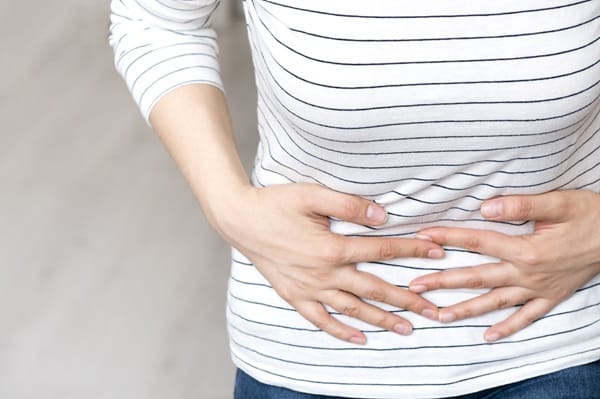Bloating, a common digestive issue, affects many people worldwide, leading to discomfort and inconvenience. It’s characterized by a feeling of fullness, swelling in the abdominal area, and sometimes pain. This post delves into the best ways to reduce bloating, offering practical and effective strategies. From dietary adjustments to lifestyle changes and the role of probiotics and herbal remedies, each aspect is explored to provide a comprehensive guide. Understanding and managing bloating can significantly improve your quality of life, and this article aims to equip you with the knowledge to do just that.
Contents
Understanding Bloating

Bloating is not just an occasional inconvenience; it’s a symptom often rooted in the digestive system’s response to certain foods, habits, or underlying conditions. It occurs when the gastrointestinal (GI) tract is filled with air or gas. The feeling of being bloated can come with discomfort and sometimes pain, making it a condition that many seek to alleviate. Common causes include overeating, intolerance to certain foods, and irregularities in the body’s digestive process.
The triggers of bloating are diverse, ranging from the consumption of high-FODMAP foods to stress-related gastrointestinal responses. Identifying personal triggers is a crucial step in managing bloating effectively. For some, it might be specific foods like beans or dairy products, while for others, it could be related to lifestyle factors such as stress or eating habits. Understanding these triggers is the foundation for implementing the strategies discussed in the following sections, aimed at reducing and managing bloating.
Dietary Adjustments

One of the most effective ways to combat bloating is through dietary adjustments. Foods high in FODMAPs (Fermentable Oligo-, Di-, Monosaccharides, And Polyols) are known to cause bloating in some individuals. These include certain fruits, vegetables, grains, and dairy products. Identifying and reducing the intake of high-FODMAP foods can significantly alleviate bloating symptoms. However, it’s important to ensure that you still maintain a balanced diet.
Incorporating fiber into your diet is also crucial, but it should be done gradually. A sudden increase in fiber can exacerbate bloating, so it’s advisable to increase intake slowly. Additionally, staying hydrated plays a key role in digestion and can help reduce bloating. Water helps break down food, allowing for smoother digestion and reducing the likelihood of gas and bloating. These dietary changes, when implemented thoughtfully, can make a substantial difference in managing bloating.
Lifestyle Modifications

Alongside dietary changes, modifying certain lifestyle habits can significantly impact bloating. Regular exercise, for instance, stimulates the normal contractions of the digestive tract and can help reduce bloating. It doesn’t have to be intense; even gentle activities like walking or yoga can be beneficial. Exercise also helps in stress reduction, which is another crucial aspect of managing bloating, as stress can have a direct impact on your digestive system.
Eating habits also play a crucial role. Eating slowly and chewing food thoroughly can prevent swallowing excess air, which contributes to bloating. Smaller, more frequent meals can be easier on the digestive system compared to large, heavy meals. Additionally, avoiding eating late at night gives your body time to digest before sleep, reducing the likelihood of waking up bloated. These lifestyle modifications, when combined with dietary adjustments, create a powerful approach to reducing bloating.
Probiotics And Digestive Enzymes

The role of probiotics in digestive health is increasingly recognized as crucial in managing bloating. Probiotics are live bacteria and yeasts that are beneficial for your digestive system. They help balance the gut microbiome, which can be key in reducing bloating, especially for those with digestive disorders like IBS. Foods rich in probiotics, such as yogurt, kefir, and fermented foods, can be incorporated into the diet to enhance gut health. Additionally, probiotic supplements are an option for those who find it challenging to get enough from their diet alone.
Digestive enzymes, on the other hand, aid in breaking down food components, making digestion more efficient and reducing the likelihood of bloating. People may experience bloating due to a deficiency in certain enzymes needed to digest specific foods, such as lactase for lactose digestion. In such cases, supplementing with the necessary digestive enzymes can provide relief. It’s important to consult a healthcare professional before starting any supplement regimen, as they can provide personalized advice based on individual health needs and conditions.
Herbal Remedies And Teas

Herbal remedies and teas offer a natural approach to alleviating bloating. Herbs like ginger, peppermint, and chamomile have been used for centuries to aid digestion and reduce bloating. Ginger, known for its anti-inflammatory properties, can help relax the intestinal tract, while peppermint soothes the muscles of the digestive system, reducing spasms that can cause bloating. Chamomile, often consumed as a tea, is praised for its calming effects on the stomach and the ability to reduce gas and bloating.
Incorporating these herbs into your diet can be simple and enjoyable. Ginger can be added to meals or consumed as tea, while peppermint tea is a refreshing beverage that can be enjoyed after meals to aid digestion. Chamomile tea, best taken before bed, can provide digestive relief and promote relaxation. It’s important to note that while these herbal remedies are generally safe, they may not be suitable for everyone, especially those with certain medical conditions or those taking specific medications, so consulting with a healthcare provider is advisable.
Medical Consultation And Treatment

Seeking medical advice is crucial when bloating is persistent, severe, or accompanied by other worrying symptoms like weight loss, severe abdominal pain, or changes in bowel habits. These symptoms could indicate underlying health issues that require professional diagnosis and treatment. A healthcare provider can conduct necessary tests to determine the cause of bloating and recommend appropriate treatment, which might include medications or other interventions.
Medical treatments for bloating vary depending on the underlying cause. For instance, if a digestive disorder like IBS is the culprit, a doctor may prescribe medication to manage the condition, thereby reducing bloating. In other cases, over-the-counter remedies may be recommended. It’s important to follow the guidance of a healthcare professional and not solely rely on self-diagnosis and treatment, as this could overlook a more serious health issue.
Personalized Approaches To Bloating

Bloating is a highly individual experience, and what works for one person may not work for another. It’s essential to understand that there is no one-size-fits-all solution. Keeping a food and symptom diary can be an effective way to identify personal triggers and monitor the effectiveness of different strategies. This personalized approach allows for adjustments based on individual responses, leading to more effective management of bloating.
The importance of a holistic approach cannot be overstated. This involves considering all aspects of health, including diet, lifestyle, mental health, and underlying medical conditions. Working with healthcare professionals, such as dietitians or gastroenterologists, can provide insights into personalized strategies that are most effective for individual needs. By adopting a comprehensive and personalized approach, managing bloating becomes a more attainable and sustainable goal.
Unlock The Secret To Bloating Relief
Reducing bloating involves a combination of understanding your body, making dietary and lifestyle adjustments, exploring natural remedies, and seeking medical advice when necessary. Remember, the journey to a bloat-free life is personal and varies from one individual to another. Start by implementing some of the strategies discussed, pay attention to how your body responds, and don’t hesitate to seek professional help for tailored advice. Take the first step today towards a more comfortable and healthier digestive experience.


